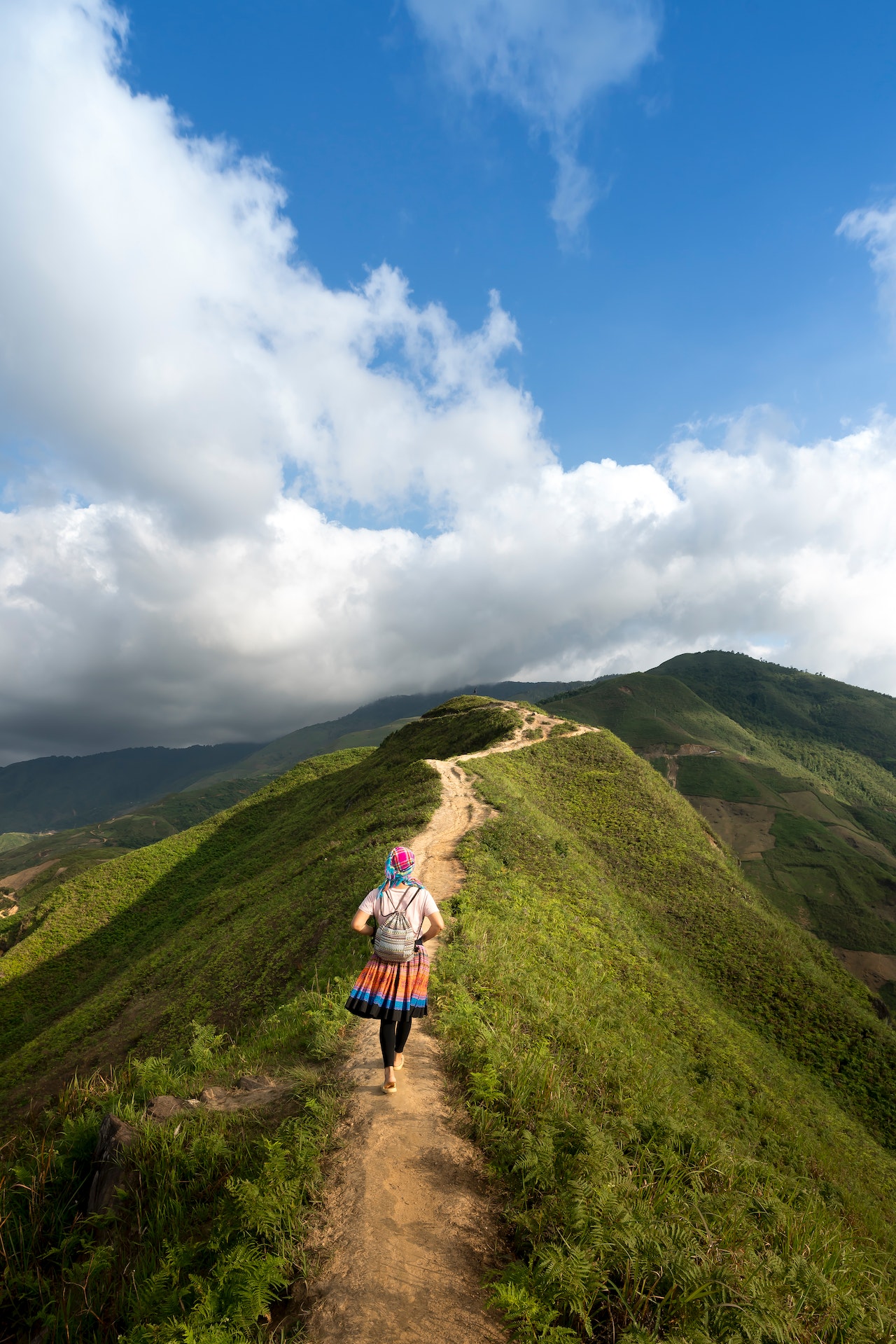Solo Traveling Abroad: Embracing Independence and Making the Most of Your Journey

Solo traveling abroad refers to the practice of traveling to foreign countries or destinations without the company or assistance of friends, family, or organized tour groups. It involves embarking on a journey independently, managing all aspects of the trip, and navigating through different cultures and unfamiliar environments alone. Solo travelers take on the responsibility of planning their itinerary, accommodations, transportation, and activities, allowing them the freedom to explore and experience the world on their terms. Solo traveling abroad can be an incredibly rewarding and enriching experience.
Growing popularity of solo travel
In recent years, solo traveling has witnessed a remarkable surge in popularity. More people are embracing the freedom and self-discovery it offers. The desire for personal growth, cultural immersion, and unique experiences, along with increased connectivity through technology and social media, has fueled the trend. Solo travel allows individuals to break free from conventional tourism, fostering independence, mindfulness, and a deeper understanding of oneself and the world.
Importance of preparation and research
Preparation and research are paramount when embarking on solo traveling. Thoroughly planning the trip helps ensure safety, saves time, and maximizes the overall experience. Understanding the destination’s culture, customs, and local laws is crucial to avoid cultural misunderstandings or legal issues. Researching accommodations, transportation options, and potential risks allows travelers to make informed decisions. Preparing a detailed itinerary and having contingency plans enhances confidence and reduces stress during the journey. Additionally, learning basic phrases of the local language can facilitate communication and interactions with locals. Adequate preparation and research empower solo travelers to navigate unfamiliar territories successfully and make the most of their transformative and enriching solo adventures.
Benefits of solo traveling
Solo traveling offers a plethora of benefits, including:
Personal Growth and Self-Discovery: Traveling alone pushes you outside of your comfort zone and encourages personal growth. You’ll learn to navigate new cultures, languages, and social situations, which can enhance your problem-solving skills, confidence, and adaptability. Additionally, spending time alone can lead to introspection and self-discovery.
Enhanced Cultural Immersion: Solo travel often facilitates more interactions with locals and fellow travelers. Without the safety net of companions, you’ll be more inclined to engage with people from different backgrounds, opening up opportunities for cultural exchange and meaningful connections.
Increased Independence and Confidence: Navigating foreign countries, dealing with unexpected situations, and making decisions independently will boost your confidence and independence. These qualities can positively impact other areas of your life as well.
Greater Focus on Interests: With no compromises on the itinerary, you can fully indulge in the activities and places that interest you the most. Whether it’s visiting historical sites, hiking in nature, or trying local cuisine, you can tailor the experience to suit your passions.
Overcoming Challenges: Solo travel is not without its challenges, such as language barriers, navigation issues, and occasional loneliness. However, overcoming these obstacles can be immensely rewarding and provide valuable life lessons.
Personal Safety: While solo travel can be safe, it’s essential to take precautions and stay vigilant, especially in unfamiliar environments. Researching your destinations, using reputable accommodations, and staying aware of local customs can contribute to a safer experience.
Planning your solo trip
Planning a solo trip involves essential steps to ensure a successful and enjoyable journey. Start by choosing a destination that aligns with your interests and preferences. Research the location’s culture, safety, and visa requirements. Create a detailed itinerary with flexible options, allowing for spontaneity. Book accommodations and transportation in advance. Inform trusted friends or family of your travel plans and stay connected during the trip. Pack light, including essential items and necessary documents. Embrace the adventure with an open mind and be prepared for enriching experiences and personal growth.
Packing Essentials
When packing for a solo trip, focus on essentials to keep your luggage light and manageable. Start with travel documents, including passport, visas, and ID cards. Pack versatile clothing suitable for the destination’s weather and cultural norms. Don’t forget personal hygiene items, medications, and a basic first aid kit. Bring a reliable travel adapter and portable charger for electronics. Remember a travel-sized laundry kit, a reusable water bottle, and a daypack for excursions. Limit unnecessary items, and prioritize comfort and convenience. Packing smart ensures you have everything you need while maintaining mobility and ease during your solo adventure.
Cultural sensitivity
Cultural sensitivity is paramount when engaging in solo traveling. Respect local customs, traditions, and beliefs, adapting your behavior and dress appropriately. Listen and learn from the locals, showing genuine interest in their way of life. Avoid assumptions and stereotypes, embracing cultural diversity. Engage in responsible tourism, supporting local businesses and conserving the environment. Open-mindedness and empathy are essential for creating meaningful connections and fostering mutual understanding during solo adventures.
Navigating Language barriers
Navigating language barriers is crucial during solo travel. Carry a basic phrasebook or use language learning apps to communicate essential needs and show respect for the local language. Utilize gestures, visuals, and simple English to bridge communication gaps. Stay patient and smile, as it can break the ice and foster goodwill. Seek help from hotel staff or fellow travelers when needed. Embrace the opportunity to learn and appreciate diverse languages, fostering cultural exchange and enriching your solo journey.
Engaging in safe socializing
When solo traveling, prioritize safe socializing by following these tips:
1) Meet in public places
2) Share your plans with someone trustworthy
3) Trust your instincts and avoid risky situation
4) Choose reputable group tours or activities
5) Use social apps with caution
6) Limit alcohol consumption
7) Respect local customs and boundaries
8) Keep emergency contact information handy
Flexibility and spontaneity
Embrace flexibility and spontaneity during solo travel to create unforgettable experiences. Be open to unexpected opportunities and changing plans, allowing for authentic connections and personal growth. Say “yes” to last-minute adventures, local suggestions, and unique encounters. Flexibility enables you to adapt to new environments and challenges, while spontaneity unveils hidden gems and serendipitous moments. Embrace the unknown with a positive attitude, and you’ll find that solo travel becomes a thrilling journey of self-discovery and limitless possibilities. Let go of rigid itineraries and embrace the freedom of the road ahead!
Conclusion
Solo travel offers a transformative and liberating experience. It empowers individuals to step out of their comfort zones, fostering self-reliance, confidence, and personal growth. The journey enables authentic connections with diverse cultures and people, leading to a deeper understanding of the world and oneself. Embrace the freedom of spontaneous exploration, while prioritizing safety and flexibility. Solo travel is a gateway to adventure, self-discovery, and cherished memories that will last a lifetime. So, pack your bags, embark on this extraordinary adventure, and unlock the boundless potential of solo travel!


